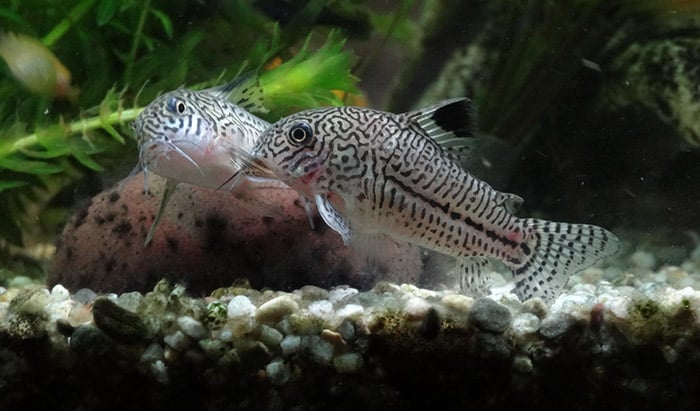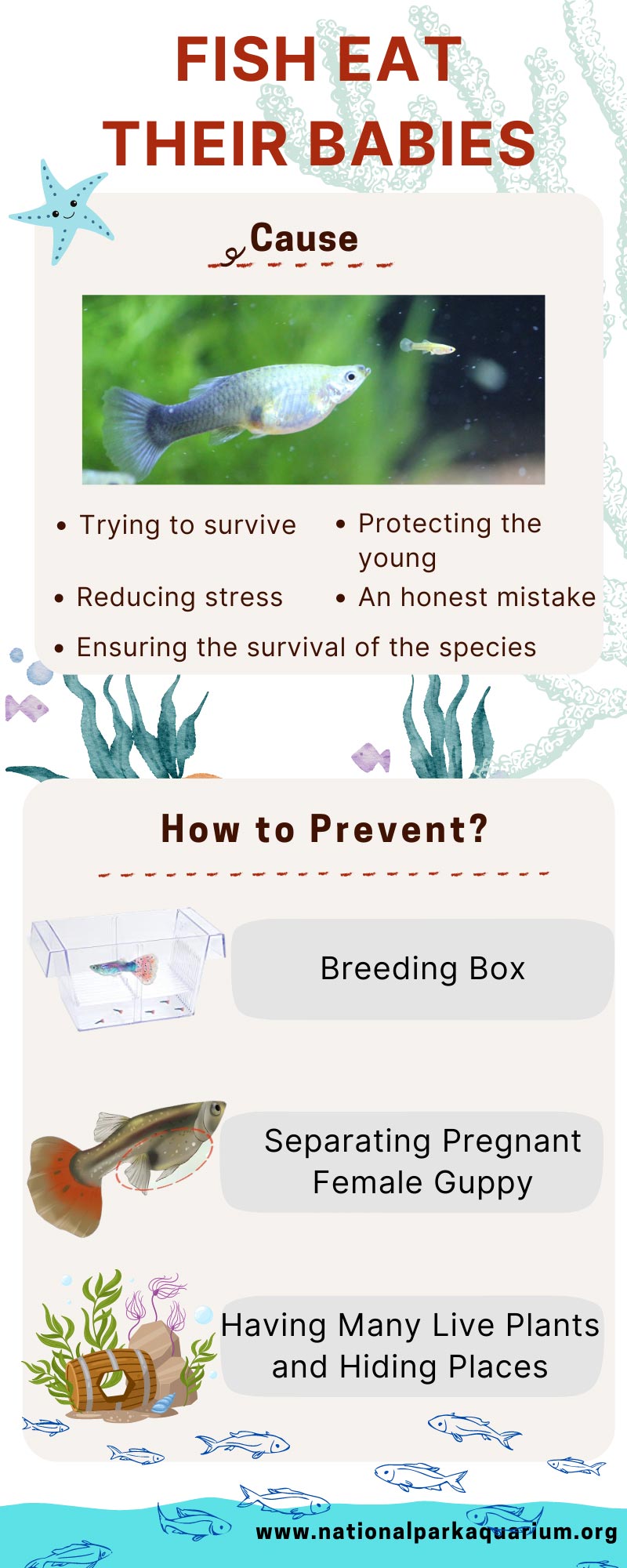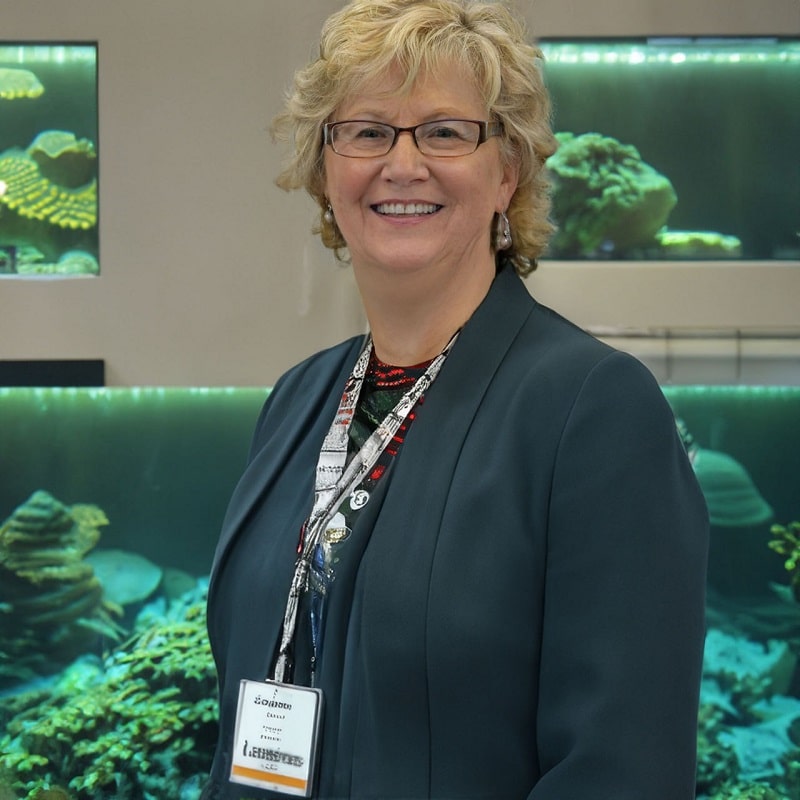Some people may find it shocking that fish eat their babies, but it is a fairly common behavior in the animal kingdom. There are several reasons why fish may consume their offspring, and the motivations can vary depending on the species of fish involved.
While it is unfortunate that baby fish sometimes become food for their parents, this pattern helps ensure the species’ survival as a whole.
In this blog post, we’ll take a closer look at why do fish eat their babies and how this affects the ecosystem. We’ll also examine some possible explanations for why this phenomenon occurs in the first place. Stay tuned!
Why Fishes Eat Their Eggs And Babies?

1. Trying to survive
In many situations, baby fish cannot fend for themselves and are easy prey for predators. As a result, parents may consume their offspring to reduce the risk of them being eaten by other animals.
This type of behavior is prevalent in species that are struggling to find food.
In some cases, fish may also eat their young because they compete for resources. If a parent fish cannot find enough food to support itself and its offspring, it may consume the young to increase its chances of survival. This type of competition can be particularly intense in environments where food is scarce.
2. Ensuring the survival of the species
In many species, baby fish cannot survive on their own and will quickly die if their parents do not protect them.
By consuming their offspring, parents can ensure that at least some of their genes are passed on to the next generation. This type of behavior is known as natural selection, one of the main drivers of evolution.
In some cases, fish may also eat their young to control the population size. If there are too many fish in an area, it can lead to competition for resources and a decrease in overall fitness.
By eating some of their offspring, parents can help keep the population size under control and ensure that there are enough resources to go around.
3. Protecting the young
Fish may also consume their young to prevent them from being cannibalized by other members of the same species. This type of behavior is known as infanticide, and it is pretty common in the animal kingdom.
While it may seem counterintuitive, cannibalism can benefit the species’ survival as a whole.
4. Reducing stress
Fish may also eat their young to relieve stress. If a parent fish is under a lot of pressure, it may consume its offspring to cope with the situation. This type of behavior is known as self-medication.
5. An honest mistake
Sometimes, fish eat their babies when mistaking them for food, especially when the fries are too small.
How To Prevent Fish Eat Their Babies?
- To ensure that fish in your tank are compatible, opt for fish that won’t overcrowd the tank or accidentally swallow each other. It’s also important to consider their behavior and characteristics to prevent stress.
- Separate fry and adults by using separate tanks to ensure they don’t interact. This is crucial for breeders and should be done from birth.
- Optimize water conditions by regularly checking and improving water quality, temperature, and chemical levels.
- Create hiding spots by adding structures or live plants for fry to hide. However, this should be a last resort.
- Use a breeding box (especially for guppies) by separating pregnant guppies and their fry immediately after birth. Keep fry in a breeding box for 6-8 weeks until they’re too big to be eaten

Source: Majestic AquariumsTV
Conclusion
There are many different reasons why fish eat their young. In most cases, this behavior is driven by the need to survive. To maintain the harmony of your aquarium ecosystem, consider following the National Park Aquarium tips outlined in guide to creating a thriving aquarium ecosystem.
What do you have to say about young fish being devoured by their parents? Do you think there could be a deeper meaning behind this act? Let us know in the comments below!




